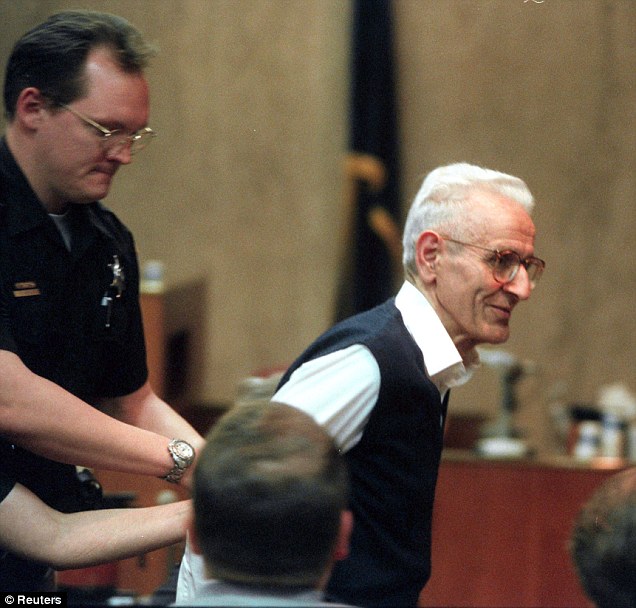
May 26, 1928 Jack Kevorkian is born in Pontiac, Michigan to Armenian immigrants.
1952 Kevorkian graduates from the University of Michigan Medical School.
1959 Kevorkian proposes in a medical journal that condemned prisoners be given the right to choose death by suicide in lieu of prescribed execution methods.
1980s Kevorkian, in a series of articles in a German medical journal, outlines his case for legalized euthanasia.
1987 Kevorkian advertises in Detroit papers as a “death counselor.”
June 4,1990 Kevorkian assists in his first public suicide. His patient in Janet Adkins, a 54-year-old woman suffering from Alzheimer’s disease. Over the next 8 years, Kevorkian will assist in the deaths of 130 people.
Dec. 13, 1990 Murder charges against Kevorkian for th death of Adkins are dropped after a ruling that Michigan has no law prohibiting assisted suicide.
1991 The State of Michigan revokes Kevorkian’s medical license. Jack publishes a book called “Prescription Medicide.”
1992 Kevorkian published an article in the American Journal of Forensic Psychiatry offering guidelines for doctors who assist patients with their suicides.
Aug. 4, 1993 Kevorkian assists in the suicide of Thomas Hyde.
May 2, 1994 Kevorkian is tried and acquitted for assisting in a suicide of Thomas Hyde.
1995 The Michigan Court of Appeals issues a ruling upholding an order that prohibited Kevorkian from assisting with suicides.
Mar. 8, 1996 Kevorkian is acquitted of assisted suicide in connection with the death of two patients (Frederick and Khalili).
May 14, 1996 Kevorkian is acquitted of assisted suicide in connection with the deaths of two more patients ( Miller and Wantz).
Jun. 12, 1997 The trial of Kevorkian for assisting in the suicide of patient Loretta Peabody ends in a mistrial. He is not retried.
1997 Kevorkian releases a jazz CD called “The Kevorkian Suite: A Very Still Life.”
Sept. 17, 1998 Kevorkian assists in the suicide of Thomas Youk, a 52-year-old patient suffering from ALS. Kevorkian tapes the event.
Nov. 22, 1998 CBS’s “60 Minutes” airs the Youk videotape.
Mar. 26, 1999 Kevorkian is charged with murder and the delivery of a controlled substance in connection with the death of Thomas Youk.
June, 1999 Kevorkian is tried and convicted of second-degree murder in connection with the death of Thomas Youk.
Sept. 29, 2005 In an MSNBC interview, Kevorkian says that if he is granted parole, he would not assist any additional patients with death. Instead, he would focus on changing existing laws.
Dec. 22, 2005 Kevorkian is denied parole by a 7 to 2 vote.
June 1, 2007 Kevorkian is released on parole.
Mar. 12, 2008 Kevorkian announces he will run for Congress as an independent. He is handily defeated in the general election in November, receiving only 2.6% of the votes.
April 15, 2010 Kevorkian is interviewed on CNN by Anderson Cooper.
April 24, 2010 The movie “You Don’t Know Jack” premieres on HBO. Kevorkian is portrayed by Al Pacino.
June 3, 2011 Kevorkian dies, after being hospitalized with pneumonia and kidney problems. There were no artificial attempts to keep him alive and his death was reportedly painless.
